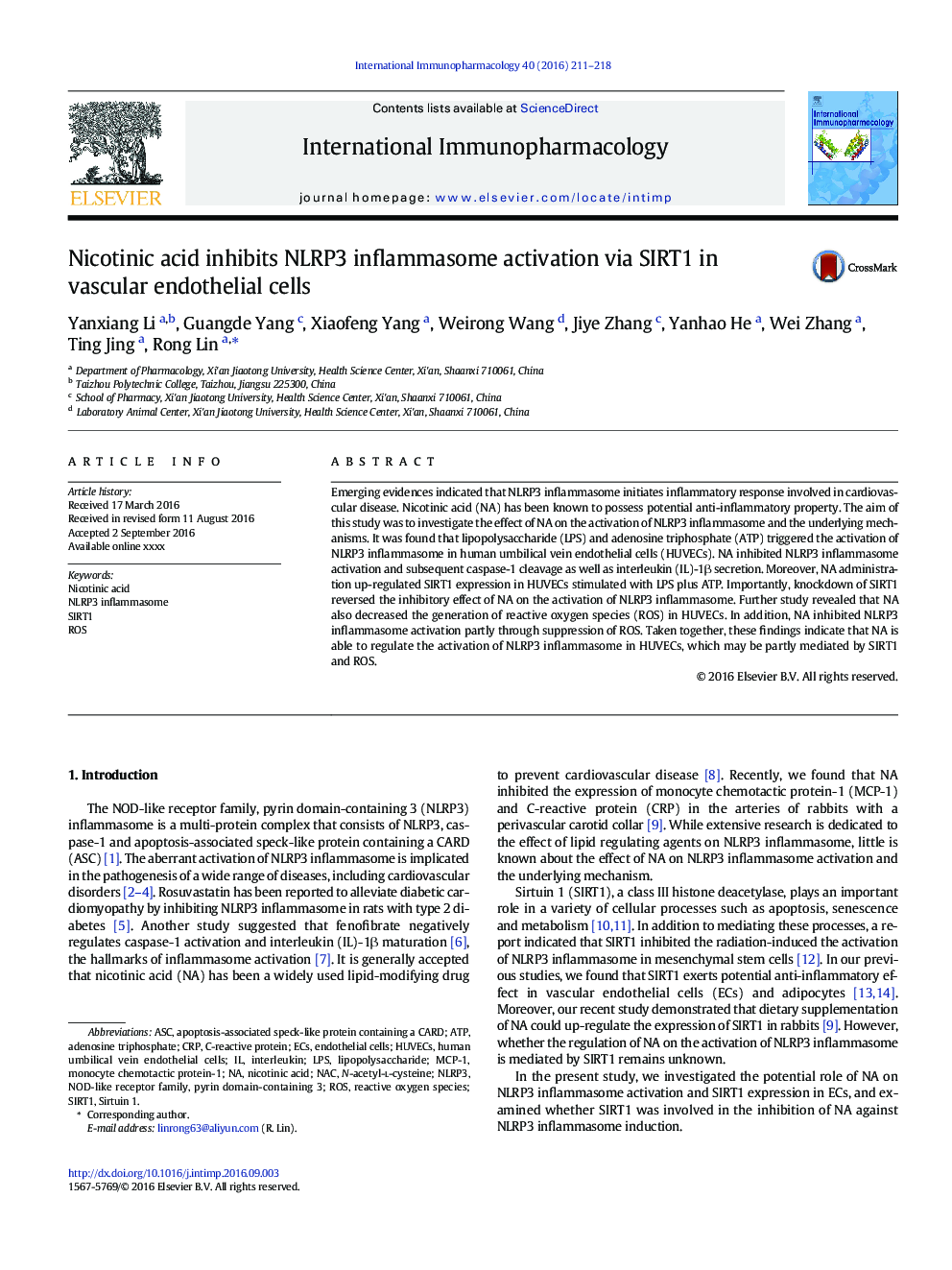| Article ID | Journal | Published Year | Pages | File Type |
|---|---|---|---|---|
| 2540175 | International Immunopharmacology | 2016 | 8 Pages |
•Nicotinic acid exerts anti-inflammatory property by inhibiting NLRP3 inflammasome.•Nicotinic acid blocks NLRP3 inflammasome activation in vascular endothelial cells.•The effect of nicotinic acid on NLRP3 inflammasome is mediated by SIRT1.•Nicotinic acid decreases the generation of ROS in vascular endothelial cells.•Nicotinic acid inhibits NLRP3 inflammasome activation partly through ROS.
Emerging evidences indicated that NLRP3 inflammasome initiates inflammatory response involved in cardiovascular disease. Nicotinic acid (NA) has been known to possess potential anti-inflammatory property. The aim of this study was to investigate the effect of NA on the activation of NLRP3 inflammasome and the underlying mechanisms. It was found that lipopolysaccharide (LPS) and adenosine triphosphate (ATP) triggered the activation of NLRP3 inflammasome in human umbilical vein endothelial cells (HUVECs). NA inhibited NLRP3 inflammasome activation and subsequent caspase-1 cleavage as well as interleukin (IL)-1β secretion. Moreover, NA administration up-regulated SIRT1 expression in HUVECs stimulated with LPS plus ATP. Importantly, knockdown of SIRT1 reversed the inhibitory effect of NA on the activation of NLRP3 inflammasome. Further study revealed that NA also decreased the generation of reactive oxygen species (ROS) in HUVECs. In addition, NA inhibited NLRP3 inflammasome activation partly through suppression of ROS. Taken together, these findings indicate that NA is able to regulate the activation of NLRP3 inflammasome in HUVECs, which may be partly mediated by SIRT1 and ROS.
